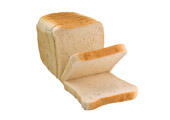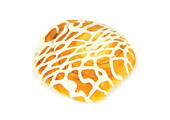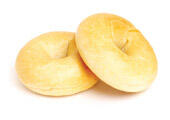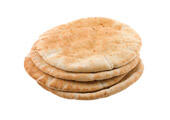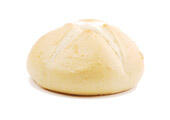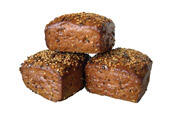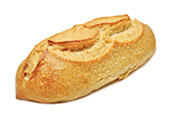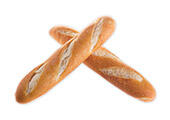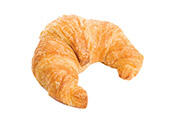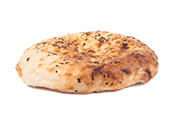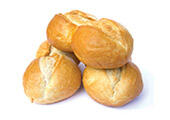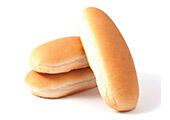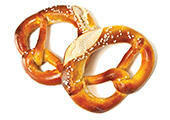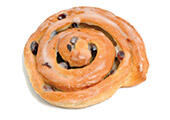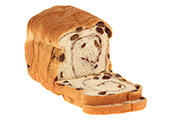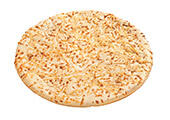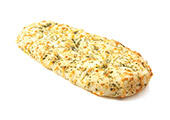Careers
The Henry Group is currently offering Careers in the following:
Millwright
Job Description
Nature of the Work
THG millwrights install, repair, replace, and dismantle the machinery and heavy equipment used in many industries. Responsibilities require a wide range of skills—from blueprint reading and pouring concrete to diagnosing and solving mechanical problems.
THG millwright’s responsibilities begin when machinery arrives at the job site. New equipment must be unloaded, inspected, and moved into position. To lift and move light machinery, millwrights use rigging and hoisting devices, such as pulleys and cables. In other cases, they require the assistance of hydraulic lift-truck or crane operators to position the machinery. Although these pieces of equipment are available for use, some heavy lifting may be required.
Because millwrights often decide which device to use for moving machinery, they must know the load-bearing properties of ropes, cables, hoists, and cranes. THG millwrights are also required to operate aerial lift equipment such as scissor lifts and boom lifts.
THG millwrights consult with project managers and others to determine the optimal placement of machines in a plant. In some instances, this placement requires building a new foundation. THG millwrights either prepare the foundation themselves or supervise its construction, so they must know how to read blueprints and work with building materials, such as concrete, wood, and steel. THG millwrights are expected to perform any job assigned to them to the best of their ability.
When assembling machinery, THG millwrights fit bearings, align gears and wheels, attach motors, and connect belts, according to the manufacturer’s blueprints and drawings. Precision leveling and alignment are important in the assembly process; THG millwrights must have good mathematical skills, so they can measure angles, material thickness, and small distances with tools such as squares, calipers, and micrometers. When a high level of precision is required, devices such as lasers and ultrasonic measuring tools may be used. THG millwrights also work with hand and power tools, such as cutting torches, welding machines, and soldering guns. Some of our workers use metalworking equipment, such as lathes or grinders to modify parts to specifications. All THG millwrights are required to possess their own basic hand tools.
In addition to installing and dismantling machinery, THG millwrights repair and maintain equipment. This includes preventive maintenance, such as lubrication and fixing or replacing worn parts.
Increasingly sophisticated automation means more complicated machines for our millwrights to install and maintain. For example, THG millwrights may install and maintain numerical control equipment—computer controlled machines that produce products in the baking and snack industry. This machinery requires special care and knowledge, so our millwrights often work closely with computer or electronics experts, electricians and manufacture’s representatives to install it.
Working Conditions
Working conditions vary by project. THG Millwrights are employed in bakeries often work in a manufacturing setting and use protective equipment to avoid common hazards. For example, protective devices, such as safety belts, protective glasses, and hard hats may prevent injuries from falling objects or machinery. Other projects may require workin goutdoors in uncomfortable weather conditions.THG millwrights are required to comply with all plant level GMP’s (Good Manufacturing Practices) this includes wearing hairnets and beard covers if required. Also no tobacco products or chewing gum is allowed while in these facilities. It is the responsibility of each employee to observe safety regulations and to use the safety equipment provided. Failure to comply with these rules could result in immediate termination.
THG millwrights may work independently or as part of a team. They must work quickly and precisely, because disabled machinery costs our customers time and money. Many of our millwrights work overtime; most always our millwrights work more than 40 hours during a typical week. During shutdowns, millwrights are assigned shift work, because of downtime requirements laid out by our customers.
Apply Now »
Mechanical Designer
Job Description
Food Equipment manufacturing company seeking a skilled mechanical designer to support our growth needs. Individual must be intrigued with a fast paced work environment that involves the design and implementation of custom as well as standard equipment designs.
Design and develop automation food/bakery processing equipment for a well known bakery industry leader. You will be responsible for standard equipment and customized solutions to meet customer specifications. Experience of 3-7 years with a Solidworks 3-D Modeling Software required, experience with ProE or Inventor may be considered. 2D AutoCad proficiency required.
Designer should have relevant experience within the following areas: mechanical conveyor systems, material handling, sheet metal design, structural fabrication design, packaging equipment, drive systems, pneumatic systems, and general automation or robotic systems. Experience with Heat Transfer calculations preferred. Thermal Dynamics experience would be a plus. Any food equipment design experience or project management experience is a plus.
Responsibilities are to support and provide technical documentation, including, but not limited to, bills of materials, detailed fabrication drawing sets, waterjet/laser/CNC file prep, bend allowance calculations, technical manual support, assembly drawings, manufacturing support for your designs. Coordination with electrical engineering. Sales layout drawing support.
Qualifications
3-7 Years Mechanical Design Experience
Some Travel Required (5-10%)
SolidWorks Experience Required
AutoCad Pro Proficiency
Availability for 40+ hours as needed
Salary commensurate with experience
Apply Now »
Tube Laser Operator
Job Description
- Operate manufacturing equipment for tube laser while using safe work habits.
- • Detect faulty operation of equipment and/or defective materials and notify
- supervisor.
- • Examine work pieces for defects.
- • Identify different types of materials/metals.
- • Recognize, set up, observe safety features when operating tools.
- • Lay out, position, align and secure parts.
- • Must be able to read a tape measure to 1/16 of an inch.
- • Must be able to read engineering prints/drawings.
- • Must be computer savvy in order to operate laser interface.
- • Knowledge/experience with flat laser and waterjet is desired as this position
- would provide backup on this equipment.
- • Forklift operating experience.
Skills
- Active Listing: Giving full attention to what other people are saying, taking time to
- understand the points being made, asking questions at appropriate times.
- Equipment Selection: Determining the kind of tools and equipment needed to do a job.
- Mathematics: Using mathematics to solve problems.
- Critical Thinking: Using logical reasoning to solve problems.
- Speaking: Talking to others to convey information effectively.
Abilities
- Arm-Hand Steadiness: The ability to keep your hand and arm steady while moving your
- arm or while or while holding your arm and hand in one position.
- Near Vision: Ability to see details at close range (within a few feet of the observer).
- Control Precision: The ability to adjust the controls of a machine quickly.
- Oral Expression: The ability to communicate information and ideas in speaking so others
- will understand.
- Problem Sensitivity: The ability to tell when something is wrong or is likely to go wrong.
- It does not involve solving the problem, only recognizing there is a problem and relaying
- the information to your supervisor.
- Oral Comprehension: The ability to listen to and understand information and ideas
- presented through spoken words and sentences.
- Selective Attention: The ability to concentrate on a task over a period of time without
- being distracted.
Work Activities
- Handling and Moving Objects: Using hands and arms in handling, installing, positioning,
- and moving materials and manipulating things.
- Controlling Machines and Processes: Using either control mechanisms or direct physical
- activity to operate machines or processes (not including computer or vehicles).
- Performing General Physical Activities: Performing physical activities that require
- considerable use of your arms and legs and moving your whole body, such as climbing,
- lifting, balancing, walking, stooping, and handling of material.
- Communicating with Supervisors, Peers, or Subordinates: Providing information to
- supervisors, co-workers, and subordinates by written form or in person.
- Inspecting Equipment, Structures, or Materials: Inspecting equipment, structures, or
- materials to identify the cause of errors or the problems or defects.
- Making Decisions and Solving Problems: Analyzing information and evaluating results
- to choose the best solution and solve problems.
Work Styles
- Attention to Detail: Job requires being careful about details and thorough in completing
- work tasks.
- Dependability: Job requires being reliable, responsible, and fulfilling obligations.
- Self-Control: Job requires maintaining composure, keeping emotions in check,
- controlling anger, and avoiding aggressive behavior, even in very difficult situations.
- Achievement/Effort: Job requires establishing and maintaining personally challenging
- achievement goals and exerting effort toward mastering tasks.
- Persistence: Job requires persistence in the face of obstacles.
- Cooperation: Job requires being pleasant with others on the job and displaying a good
- natured, cooperative attitude.
- Analytical: Job requires analyzing information and using logic to address work-related
- issues and problems.
- Daily and Weekly Hours Worked: Job requires employee to be flexible to work
- whatever hours work schedule requires including overtime hours.
Applicant must be prepared to demonstrate measuring skills and ability to identify
different materials. Hiring will be contingent on results. 8+ months experience
operating a laser is required.
Apply Now »

